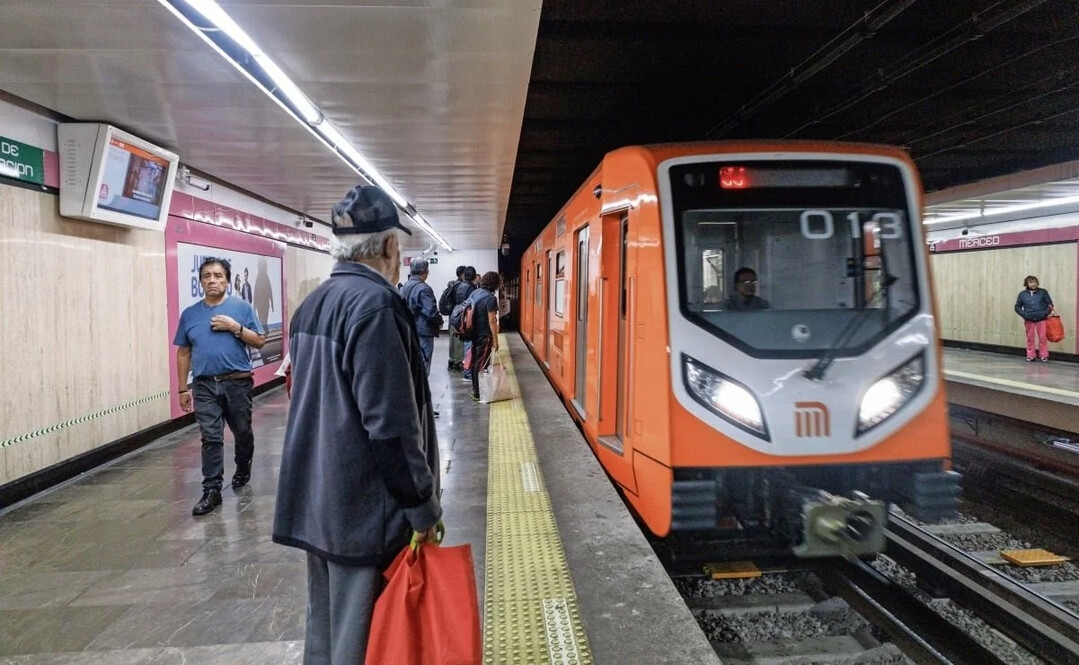
Chinese railway vehicle manufacturing giant CRRC Zhuzhou is playing a pivotal role in modernizing the railway systems of Mexican cities, opening a new chapter in Latin American urban transportation. With the recent introduction of new vehicles and systems featuring CRRC's advanced technology on Mexico City Metro Line 1 and the Monterrey Metro, the public transportation systems of these cities are expected to undergo significant improvements.
Mexico City Metro Line 1 Reopening: CRRC's 'System+' Strategy Successfully Takes Root
On April 23, 2025, the Cuauhtémoc-Chapultepec section of Mexico City Metro Line 1, a key public transportation route, was reopened after extensive modernization work by CRRC Zhuzhou. This line, spanning 18.83 km and including 20 stations, is one of Mexico City's most important transportation axes, carrying approximately 243 million passengers annually.
Launched in 2020, this modernization project is CRRC's first overseas "System Plus" undertaking, an approach that comprehensively provides investment, financing, and the manufacturing of new vehicles, as well as a holistic upgrade of the existing system. This strategy focuses not just on supplying vehicles but on enhancing the overall efficiency and safety of the urban rail system.
Through this project, 29 state-of-the-art NM-22 trainsets have been newly introduced to Line 1. Each consisting of 9 cars, these energy-efficient trains can accommodate up to 2,252 passengers and have a maximum speed of 80 km/h. Notably, the adoption of a rubber-tired system reduces operational noise and energy consumption while boasting performance optimized for Mexico City's complex terrain conditions.
In addition to vehicle replacement, the existing line's tracks, power systems, and Communication-Based Train Control (CBTC) system have been completely replaced with the latest technology. This is expected to significantly improve the stability and transport capacity of train operations, providing citizens with a more convenient and reliable public transportation service.
Guillermo Calderón, Director-General of the Mexico City Metro Collective Transport System, stated, "Currently, 17 out of 20 stations are operational, and construction on 19 stations has been completed." He also emphasized, "Line 1 now has completely new infrastructure and will offer passengers a much more comfortable and efficient travel experience."
Monterrey Metro MM-25 Train Introduction: Strengthening Transport Capacity for the 2026 FIFA World Cup
Monterrey, a major city in northern Mexico, is also experiencing innovation in its urban rail system through CRRC's technological prowess. On April 22, 2025, CRRC delivered the first three MM-25 light rail vehicle sets to Monterrey Metro Line 1. Boasting a design optimized for urban efficiency, these new trains are expected to elevate the transport capacity and service quality of the Monterrey Metro.
The introduction of the MM-25 trains is part of a broader plan to modernize Monterrey's public transportation system in preparation for hosting the 2026 FIFA World Cup. CRRC's advanced light rail vehicles are expected to play a crucial role in effectively addressing the anticipated increase in urban travel demand during the World Cup.
CRRC's Mexico Localization Strategy: Contributing to Job Creation and Technology Transfer
CRRC's entry into the Mexican market signifies more than just vehicle exports. CRRC has established a local factory in Mexico City, directly manufacturing 15 train vehicles and fostering collaboration with over 100 local component suppliers in the process.
These localization efforts have contributed significantly to job creation within Mexico, generating approximately 1,500 new positions, and to technology transfer by providing professional training opportunities to about 300 Mexican technicians. By offering advanced engineering technology along with long-term operational support, CRRC is fundamentally changing the way cities move across Mexico.
Presenting a New Model for Latin American Urban Rail Modernization
CRRC's growth in the Latin American market transcends mere business expansion, indicating a significant shift in the approach to urban rail modernization in the region. CRRC's strategy, based on integrated partnerships and advanced technology, presents a new model that moves beyond traditional vehicle supply to enhance the overall efficiency and sustainability of the entire system.
The cases of Mexico City and Monterrey demonstrate CRRC's transformation from a simple manufacturer to a key partner providing comprehensive urban transportation solutions. It is anticipated that CRRC's technological capabilities and localization strategy will positively influence the improvement of public transportation systems in other Latin American cities as well.
CRRC's Mexico City metro modernization project is evaluated as an important case that contributes not only to technological cooperation but also to the sustainable development of the city and the improvement of the quality of life for its citizens. The future impact of CRRC's innovative technology and strategies on the development of public transportation systems in Latin America and other cities worldwide remains a point of significant interest.
[Copyright (c) Global Economic Times. All Rights Reserved.]



























